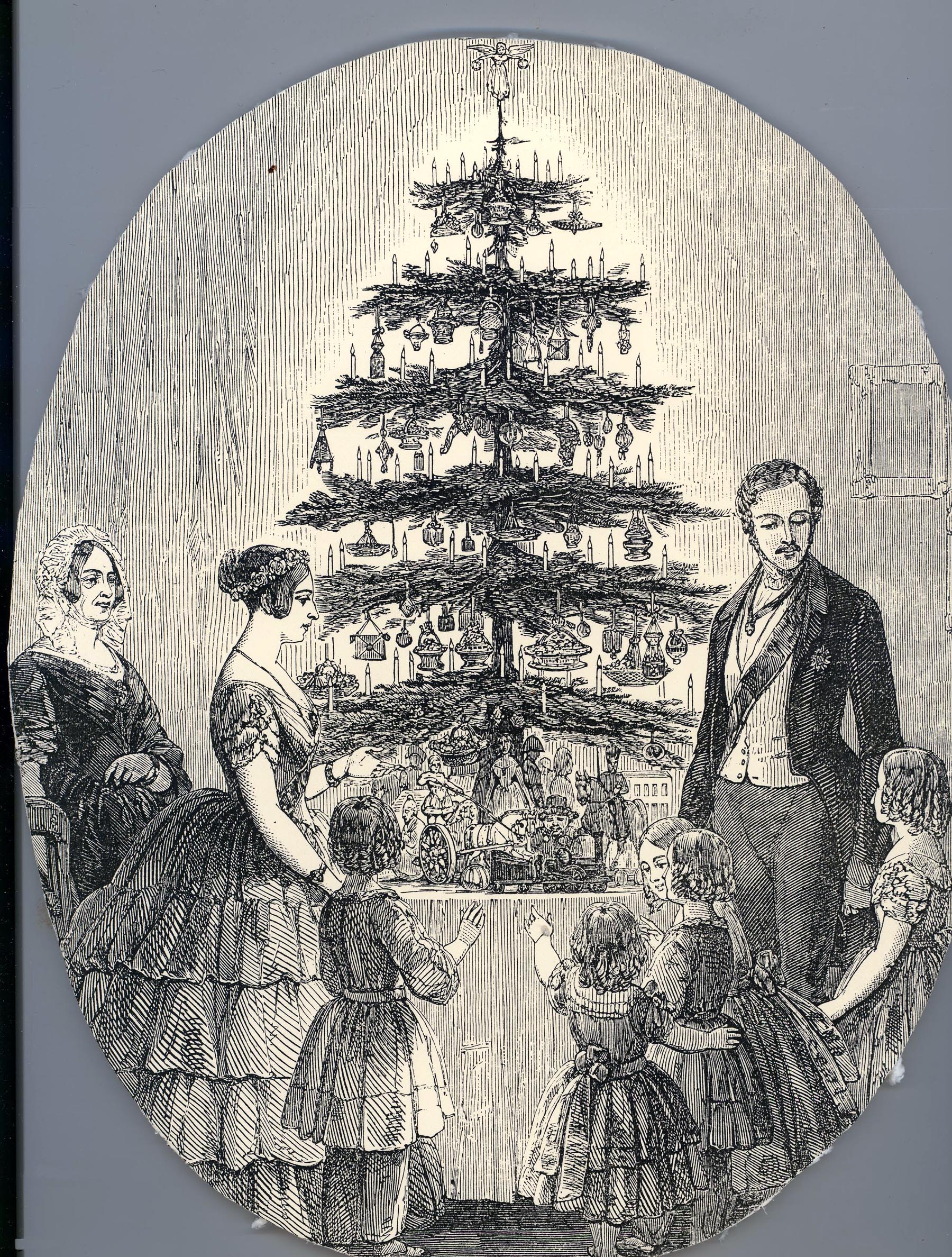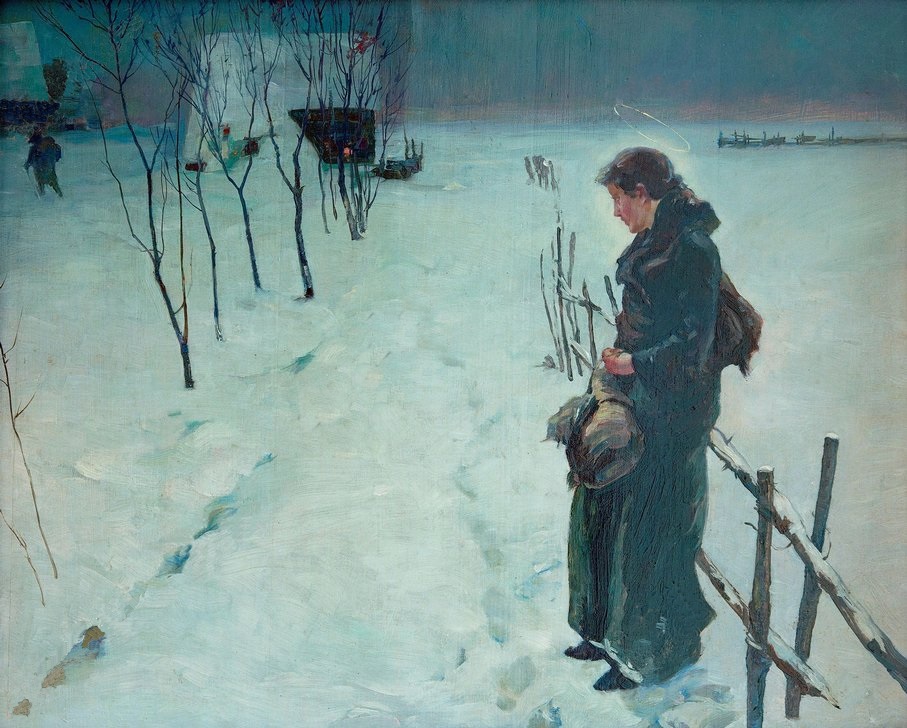
How vividly do I remember the Christmas eve and Christmas day of 1882! Ten years make great changes in our lives. Today I am a well-to-do business man, and expect to spend Christmas in my cozy home, with wife and family, and not on the wild, bleak prairies, expecting every moment a dreadful railway catastrophe.
But I had better tell my story from the beginning. Back in 1882 the liberal pay offered by the Canadian Pacific Railway to telegraph operators induced a friend of mine and myself—as I have related elsewhere—to leave Montreal and try our fortunes in the great North-West. We were given free passes as far as Winnipeg. There was a station which needed two operators, some fifty miles up the line, and we were both sent there, arriving on Christmas eve. The train stopped just long enough for us to jump on the platform, and then sped on. There was not a human being to meet us. The station had been without operators for three days, and was bitterly cold. We soon had a big fire started in the telegraph room, and were sitting beside it, discussing the loneliness of the place and the wildness of the night.
While we were talking, the busy little telegraph instrument began busily ticking for our station. The call was answered and a message received, saying that a weather report received by the dispatcher stated that the night would likely be stormy, and my friend was asked to stay up till about one o'clock in the morning, as he might be needed to take a crossing order for two trains at his station. We did not mind staying up, and whiled away the hours in pleasant conversation as we sat as near as we could get to the glowing coal fire. The storm increased and finally settled down into a blizzard. By midnight it was something appalling. There was not a hill, nor even a tree, for scores of miles, to break its force as it dashed against our lonely station. The telegraph wires along the track hummed at intervals loudly enough to be distinctly heard above the shrieks of the wind which buffeted and held high carnival along them.
Frozen particles of snow rattled fiercely against the window panes, carried by the relentless wind, which seemed to me to have conceived the demoniacal intention of wrecking our not very stalwart but exceedingly lonely home, out of revenge for daring to break even one jot of its fury as it hurried madly on. We both lapsed into silence. A feeling of isolation crept over me despite my efforts to fight it off. How separated from the world I felt. It seemed to me to have been years since I had mingled with a crowd. A great longing possessed me to be away from this lonely spot, and walk the streets of some of the large cities I had lived in. Unable longer to bear these thoughts, I rose to go out on to the platform for a moment. No sooner, however, had I raised the latch of the waiting-room door than the fierce wind dashed it against me with great force, while the huge snow-drift which had gathered against it fell upon me, almost burying me out of sight. Laughingly my companion pulled me from under the chilly and unwelcome covering.
I returned once more to the operating room, in a more contented frame of mind, and with a keener appreciation of the comfortable temperature within. A few minutes after one o'clock, the telegraph instrument, which had been silent for some time, suddenly woke to life and commenced imperiously ticking the call of our station. My friend answered, and received from the dispatcher at Winnipeg a crossing order for a west-bound passenger train and an east-bound engine. Our station signal was displayed, and once more we commenced our weary wait for the two iron horses, which were ploughing their way across the wild prairie to meet and cross each other at our station, and then continue their wild journey.
Two o'clock. Still no sign of the trains. We both fell asleep in our chairs.
I seemed scarcely to have closed my eyes when I was startled by the shriek of the east-bound locomotive. I glanced at the clock; it was 3.30. I looked at my companion. He seemed frozen with deadly fear. The next instant he jumped wildly to his feet, rushed to the door, and gazed out into the blinding storm after the engine. It was nowhere in sight. I looked anxiously at him as he tore back into the room, and with trembling hands called the dispatcher's office.
Perspiration was pouring down his face. He could hardly stand. Promptly the instrument ticked back the return call.
"Where is the passenger train?" queried our office. The reply was terrible. "Left for your station three minutes ago. Have you put the engine on the side track?" Back went the answer: "The engine has rushed past the station and has not waited for her crossing."
"My God!" replied the dispatcher, "the two trains will meet."
My companion sank on the chair. His face was ghostly.
"It will be a terrible accident," he said aloud, but to himself—he seemed to have forgotten me in his great terror.
"God help them! God help them!" he reiterated. The situation was so fearful to me that I could only sit and look spell-bound at my friend. The furious storm made the horror of the situation tenfold more unendurable.
It seemed to me that I had been sitting in this trance-like condition for hours, when I was roused by hearing an engine give a certain number of whistles, which indicated it wanted the switch opened. The next moment a man rushed into the office. "Open the switch quick!" he shouted, "the passenger train will be here in two minutes." It was the driver of the engine! My companion sprang joyously to his feet. Without asking a question he ran out into the yard, followed by the engineer.
A few minutes later they both returned. The mystery was soon explained by the driver. He had forgotten the order which had been wired to him, and which he had put in his pocket when he received it, over two hours before, away up the line. He probably would have remembered it when he passed our station had he seen any signal displayed, but he had rushed past. He must have been two miles past the station when, putting his hand into his coat pocket to get his pipe, he felt the peculiar paper upon which crossing orders are written. Like a flash the order to cross with the passenger train at our station came back to his memory.
He could not see a yard ahead of him for the storm, and knew not but the next instant he would be dashing into the passenger train with its burden of precious lives—his heart seemed to cease beating. The engine was instantly reversed, the sudden revulsion nearly tearing the locomotive to pieces. She ran on for fifty yards or more rocking like a ship in a storm. He had hurried back as fast as a full head of steam could bring him, and thus averted a dreadful accident.
We found that our station signal light had been blown out.
Five minutes later both trains had departed, and we went to bed with happy hearts, thankful for the almost miraculous prevention of a dire calamity.
Christmas day, an incident occurred at the station which went a considerable way toward settling our somewhat shattered nerves. The station had not been scrubbed for quite a long time, and was beginning to have anything but an inviting appearance.
After no end of inquiries as to where a washerwoman could be got, we located one at the far end of the village. She was a full-blooded squaw, and one of the most ill-favored specimens of the female sex I had ever set eyes upon.
Two dollars a day was the price agreed upon. She must have made five dollars every day she was at the station. She was a most industrious thief; we could keep nothing in the place from her. Not only would she unblushingly steal our groceries, but under the big loose blanket that hung in folds around her tall, gaunt figure, she actually spirited away our pots, kettles and pans.
She worked just as she pleased. Every half-hour or so she would squat on the floor, pull out an intensely black clay pipe, and indulge in a smoke. I love smoking, but I never failed to put as much distance as possible between myself and the rank black fumes which poured with so much gusto from her mouth. The last place she had to clean was the telegraph office. She entered the office very reluctantly, and furtively glanced at the telegraph instruments. "Me no like great spirit," she said fearfully, pointing to the mass of wires under the table. We talked to her for a long time and finally got her started working. The instruments were cut out so as to make no noise.
Slowly the squaw drew nearer the table where the instruments were. As she did so her coal-black eyes were actually glittering with nervous dread. Just as she was stretching her long arm under the table, a train steamed into the station. The conductor wanted orders. My companion, forgetting the poor squaw, pulled out the switch and turned on the current. Her arm must have been just touching the wires under the table at that instant.
The next moment a terrific yell was uttered by our frantic washerwoman, as she sprang to her feet and rushed for the door, upsetting the bucket of dirty water in her meteor-like progress. Out of the station, across the tracks, and away out on to the open prairie she fled, never pausing till she reached the village, where she turned into an Indian's house and was lost from view. The next morning her son came to get the few articles belonging to her. He would not come any nearer the station than the side-track, and we were compelled to carry her belongings to him.

